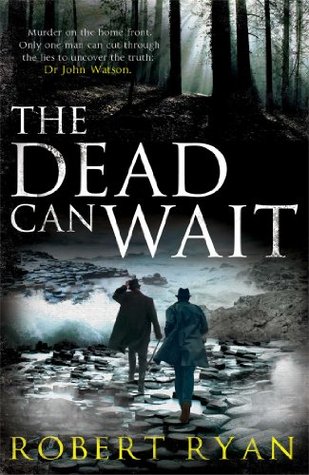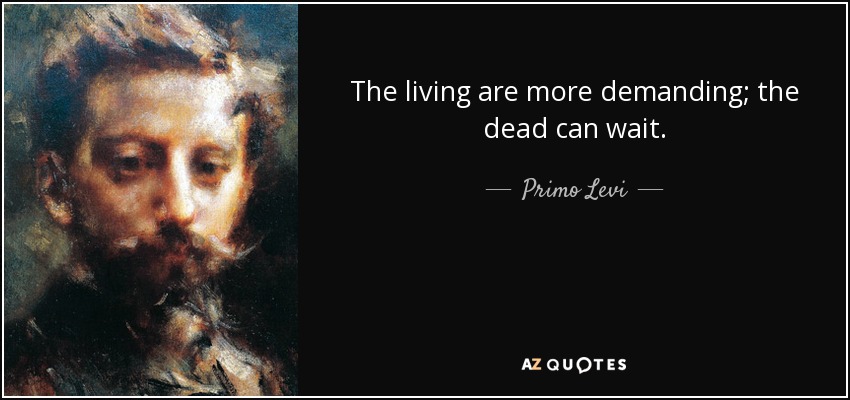The second entry in the series featuring Dr John Watson, once of 221B Baker Street, and now serving in the Royal Army Medical Corps (RAMC) during World War I. Watson is over fifty but in the crisis the RAMC welcomes his service. Even older and more infirm, Homes is left to keeping bees on the South Downs.

Watson’s celebrity as Holmes’s amanuensis opens many doors for Watson, ironically, sometimes he would prefer that it did not. Winston Churchill is one of his admirers and he soon makes Watson a pawn in a deadly game. Churchill recruits Watson for a mission in the heart of darkest Norfolk to find out what is bedevilling a weapons development project located there. The title refers to the soldiers killed there in an inexplicable accident.
Churchill’s method of recruitment is coercive, both physically and morally. Special Branch muscles Watson and there are none too subtle threats made against the decrepit Holmes. When Churchill wants something, nothing is left to chance. ‘No’ is not an alternative.
It is 1916 and trench warfare is a reality. The death tolls on the Western Front are astronomical. In the first title in the series Watson spent some time at Ypres, and knows all too well of the mud, the lice, the stench, the shelling, the rot, the dread, the pointless slaughter, the disease, the maimed, the gas…. While the physician within him wants no part of weapons, new or old, the man within wants the blood orgy to end. Reluctantly and with bad grace he agrees to investigate.
Dilbert could tell him the truth, incompetence, empire-building, blind corporate rhetoric, can-do mentality unchecked by reality, these all too often combine in a cocktail that doom all the most robust of projects. However, this is a krimi and villains there must be and they are aplenty.
To explain by a comparison, in the 1970s we now know that there were more police informers and double agents in the Front de libération du Québec than firebrand radicals, that most of the money the FLQ used for guns and explosives came through these agentsfrom the Sûreté du Québec, that that these provocateurs expressed the most enthusiasm for blood, and so on. Different sections of the Sûreté infiltrated and kept it secret from other sections so they worked at cross purposes. Much is the same here. There are so many spies in and around the weapons development project that they crowd out the technicians.
Watson does not have to play a lone hand. Mrs Gregson of the Volunteer Aid Detachment (VAD) whom he met in the first book, ‘Dead Man’s Land,’ is there with her flaming red hair, suffragette attitudes, and her extensive knowledge of motorcycles learned with her three brothers as a girl. She also knows how to defend herself thanks to those brothers. Most of the members of VAD worked as medics or nurses but did not have the formal qualifications of those professions. Mrs. Gregson, whose first name has not yet been revealed, drove ambulances in addition to clinical duties. She is a long way from the Edwardian norm for a lady of her social class. Smart, ambitions, opinionated, vocal, mechanical, uninhibited, and since she is a suffragette she is also a threat to the realm as men know it, altogether a tonic.
Watson and Gregson are united by the threat of DORA. When that name is spoken, a dark mist descends. There is no appeal from DORA. There is no higher authority than DORA. Once engaged DORA grinds all into dust.
DORA is a what, not a whom: the Defence of the Realm Act. When invoked this act enables search and seizure without warrant, incarceration without habeas corpus, no due process, or anything else. No test of rationality is applied. When Churchill invokes DORA… The likes of Watson and Gregson have no choice, or do they?
Against his will, Watson finds himself on the Western Front again and there is no safe place there.
Read the book to find out. As homework, consult Max Weber on bounded rationality.

I came across this passage from Primo Levi when looking for graphics. It is not referred to in this text but perhaps it should be.
It is true that Churchill was instrumental in the development of the tank, along with many other weapons and the Royal Flying Corps. As minister of munitions he sponsored a multitude of experiments to find the means to break the deadlock on the Western Front, keep Russia in the war, and defeat Germany. One such project involved ‘mobile water tanks for the Russian army.’ Hence the heavy gauge sheet metal, the welding, the reinforced plates, all were ostensibly for water tanks. That was the code name for project.
It is also true that Churchill spent months at Ypres in the trenches and went on more than one night reconnaissance across no man’s land to find German snipers and take prisoners. He knew trench warfare through his skin, nose, eyes, ears, and taste.
Robert Ryan has complete command of the period detail and the subject matter. Moreover, he breathes life into both the time and the place. When I compare this novel to a couple of others I have read recently by the celebrated authors, Umberto Eco (‘Número Zero’) and Yann Martel (‘The High Mountains of Portugal’), well, there is no comparison. Ryan’s book is full of life and colour whereas the two by these literary festival luminaries are dreary recitations that read like pastiches of Wikipedia entries.
Ryan’s novel also has a plot which distinguishes it from the novels of Eco and Martel named above.
There is a ‘but’ or two. The dish is too rich. There are so many side dishes, that the main course is lost at times when we delve into Zeppelin navigators, she-wolf training, rations for hostelries, Edwardian dental techniques, and so on. There is a very great of cutting back and forth which this reader never likes, still less when it is not signalled and there are so many ephemeral characters who are introduced, fleshed out, animated, and then dispatched. I plead for more economy and focus, though that always exposes the plot-holes all the more and there are a few here.
There are also a surprising number of typographical errors. The most jarring are the times when Watson things to himself about something and the text has it as ‘Holmes.’ For example, Watson picks up an object and thinks to himself, now ‘Holmes what the blazes is this doing here.’ Huh. No I do not think it is intentional to show the merging of the one, Watson, into the other ‘Holmes’ since it is not sustained. There are a few ‘form’ for ‘from’ and some errant prepositions.
My guess is that Ryan has spent a lot of thought and effort at imbibing the Edwardian Era, the Holmes Canon, the horrors of the Western Front, England in the war, and the war in general from armies to zeppelins and all the letters between. He wears the knowledge lightly, for there are no forced recitations of material, but rather he uses it deftly to enrich the action.
The Holmes Canon is a crowded field with all manner of — what should they be called — continuators? contributors? canonistas? There are those writers who simply re-animate Holmes and continue the stories. Some go to the young Holmes or to his mentor(s) or his brother Mycroft. Others with an orthogonal rotation, place other figures in the centre, like Mrs. Hudson, or who give Holmes a wife, the marvellous Mary Russell in Laurie B. King’s series, or the Baker Street irregulars. There are others that centre on Watson apart the series at hand. Even Professor Moriarty has been rehabilitated in the imagination of at least one author. Of those which I have read, some succeed in their own terms, like Graham More’s ‘The Sherlockian’ (2012), but more often than not they do not. Most try too hard to compensate with period detail, plot twists, or adolescent humour for the twin lack of insight and imagination. These are the canon fodder.
The outstanding example of failure is the BBC television series with Benedict Cumberbatch which started brilliantly in the first three episodes and, then, gradually descended into itself. The writers ran out of ideas and let the Computer Generated Images take over to milk the success of the first tranche. Being incomprehensible became its style without substance. Adolescent, indeed. Very successful it has been, I believe, but we lost interest long ago.
Skip to content
